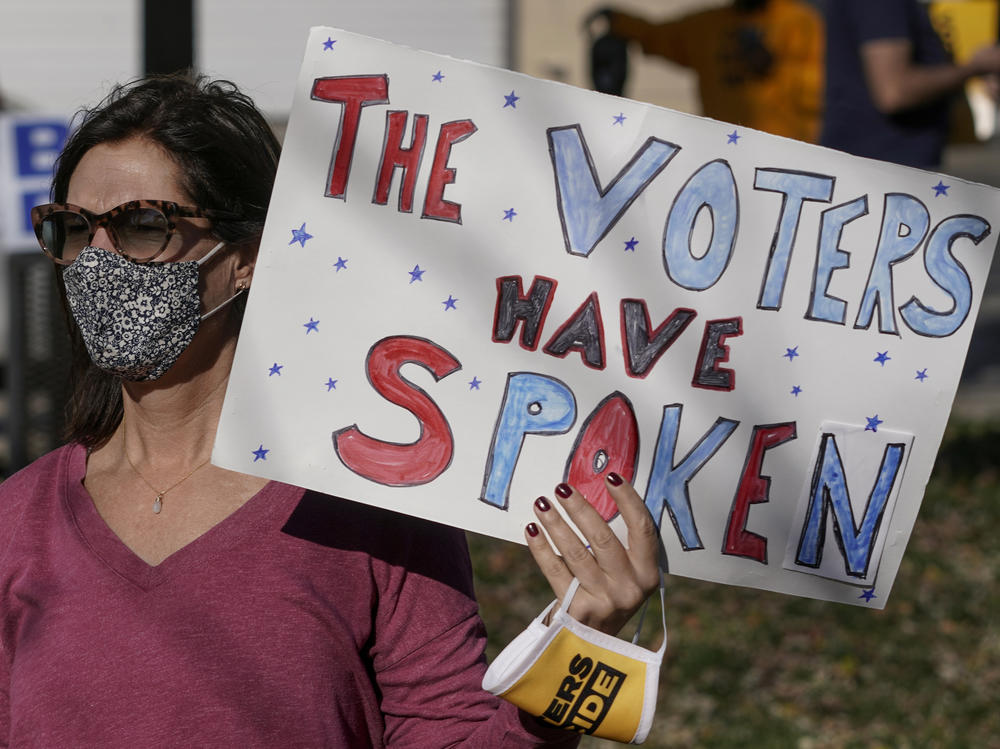Section Branding
Header Content
Wisconsin Supreme Court Rules Trump Election Challenge 'Unreasonable In The Extreme'
Primary Content
It was close but in the end, the conservative-led Wisconsin Supreme Court on Monday rejected the Trump campaign's bid to throw out more than 220,000 ballots from two Democratic county strongholds. The move, which came just shortly before Electoral College voters were due to cast their ballots, ensured President-elect Joe Biden's victory.
Conservative Justice Brian Hagedorn sided with the court's three liberal members in the 4-3 ruling, finding Trump's legal challenge to change Wisconsin's certified election results "unreasonable in the extreme" and was filed too late.
"The challenges raised by the Campaign in this case ... come long after the last play or even the last game; the Campaign is challenging the rulebook adopted before the season began," Hagedorn said in the 81-page decision.
"Striking these votes now — after the election, and in only two of Wisconsin's 72 counties when the disputed practices were followed by hundreds of thousands of absentee voters statewide — would be an extraordinary step for this court to take. We will not do so."
Biden won the state by more than 20,000 votes. The votes cast in Dane and Milwaukee counties, where the campaign was seeking to disqualify ballots, exceed more than 28,000.
Trump's attorneys had argued that all in-person absentee votes in Dane and Milwaukee counties were cast without the required application. But the court dismissed the campaign's logic, noting that "both counties did use an application form created, approved, and disseminated by the chief Wisconsin elections agency." Further, the justices noted that the form in question, known as EL-122, "was created in 2010 in an effort to streamline paperwork following the 2008 election, and has been available and in use ever since."
The justices were also critical of the Trump campaign's delay in raising objections only after the election.
"Waiting until after an election to challenge the sufficiency of a form application in use statewide for at least a decade is plainly unreasonable," Hagedorn wrote.
Shortly after the ruling was released, Wisconsin cast its 10 electoral votes for Biden.
Copyright 2020 NPR. To see more, visit https://www.npr.org.

